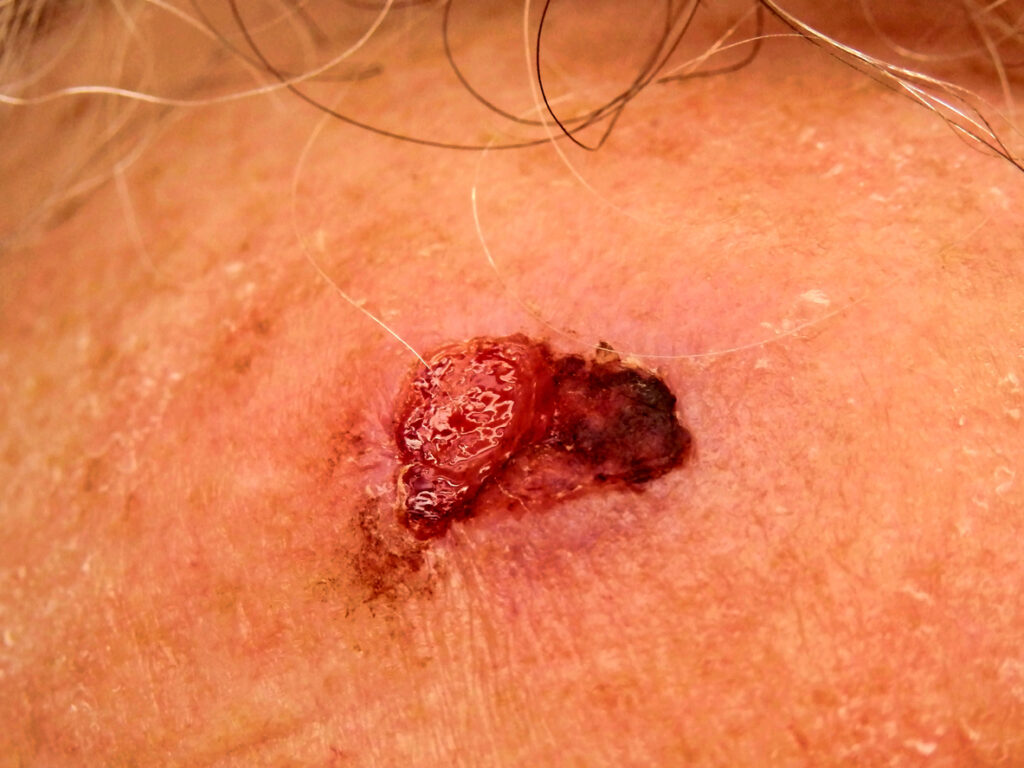Castle Biosciences, Inc.’s DecisionDx-SCC test provides more precise risk stratification than Brigham and Women’s Hospital (BWH) staging alone for guiding intensified treatment of immune-suppressed patients with high-risk cutaneous squamous cell carcinoma (SCC).
DecisionDx-SCC is a 40-gene expression profile test that uses an individual patient’s tumor biology to stratify risk of metastasis in patients with cutaneous squamous cell carcinoma who have one or more National Comprehensive Cancer Network (NCCN) high-risk factors. The test result, in which patients are stratified into a Class 1 (low), Class 2A (higher), or Class 2B (highest) risk category, predicts individual metastatic risk to inform risk-appropriate management and guide decision-making regarding the use of adjuvant radiation therapy (ART).
For the study, researchers analyzed DecisionDx-SCC test results for 954 SCC patients with at least one NCCN high-risk factor and with BWH T1 and T2a tumors with no residual tumor after Mohs surgery. Fully 441 patients with BWH T1 tumors and 336 with BWH T2a tumors were included in the study cohort. Patients with T1 tumors had similar metastasis-free survival (MFS) rates regardless of immune status yet were further stratified by their DecisionDx-SCC test result (3-year MFS: Class 1 test result: 96.9% vs. Class 2A/2B test result: 88.6%). Immune-suppressed patients with T2a tumors had significantly worse MFS than immune-competent patients with T2a tumors (71.4% vs. 91.2%). DecisionDx-SCC further stratified immune-suppressed patients with T2a tumors into those with more favorable (Class 1 test result; 3-yr MFS of 83%) and less favorable survival (Class 2A/2B test result; 3-yr MFS of 57%).
Given the study data, treatment intensification, such as ART, should be strongly considered in immune-suppressed patients with BWH T2a SCC tumors guided by DecisionDx-SCC test results.
“The data…highlights the utility of the test in immune-suppressed patients with lower-stage SCC tumors, who may have an elevated risk of metastasis due to their immune status and thus may benefit from intensified surveillance and adjuvant treatments, such as radiation, following tumor removal to reduce this risk,” says Shlomo A. Koyfman, MD, lead study author and radiation oncologist at Cleveland Clinic in Cleveland, OH.
The data was presented at the American Society for Radiation Oncology (ASTRO) 2024 Annual Meeting in Washington, D.C.


